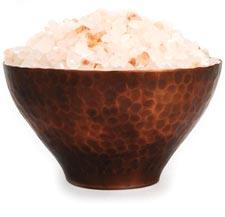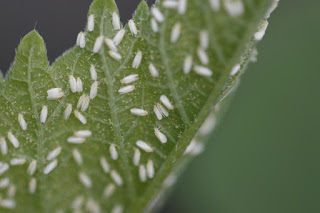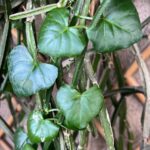PESTS: The bane of our home gardens
While the easiest thing to do is to use chemical pesticides, they are harsh and can damage the plants while killing the pests. They also kill our pollinators which is NOT what we want to do. So here are some organic pesticides which will help. Remember we need to spray the organic homemade pesticides more frequently as compared to the chemical ones to keep our garden healthy. Most of the following is taken from the website www.globalhealing.com written by Dr. Edward Group, but I have added some more detail for specific pests at the end.
1. Neem: Ancient Indians highly revered neem oil as a powerful, all-natural plant for warding off pests. Neem juice is even one of the most powerful natural pesticides on the planet, holding over 50 natural insecticides. You can use this extremely bitter tree leaf to make a natural pesticidal spray. To make neem oil spray, add half an ounce of high-quality organic neem oil and half a teaspoon of a mild organic liquid soap (I use Dr. Bronners Peppermint) to two quarts of warm water. Stir slowly. Add to a spray bottle and use immediately.
2. Himalayan crystal salt spray: For treating plants infested with spider mites, mix two tablespoons of Himalayan Crystal Salt into one gallon of warm water and spray on infected areas.

3. Mineral Oil Mix: 10-30 ml of high-grade oil with one liter of water. Stir and add to the spray bottle. This organic pesticide works well for dehydrating insects and their eggs.
4. Citrus Oil & Cayenne Pepper: This organic pesticide works well on ants. Mix ten drops of citrus essential oil with one teaspoon cayenne pepper and 1 cup of warm water. Shake well and spray on the affected areas.
5. Soap, Orange Citrus Oil, & Water: To make this natural pesticide, simply mix three tablespoons of liquid Organic Castile soap with 1 ounce of Orange oil to one gallon of water. Shake well. This is an especially effective treatment against slugs and can be sprayed directly on ants and roaches.
6. Eucalyptus Oil: A great natural pesticide for flies, and wasps. Simply sprinkle a few drops of eucalyptus oil where the insects are found. They will all be gone before you know it.
7. Onion & Garlic Spray: Mince one organic clove of garlic and one medium-sized organic onion. Add to a quart of water. Wait one hour and then add one teaspoon of cayenne pepper and one tablespoon of liquid soap to the mix. This organic spray will hold its potency for one week if stored in the refrigerator.
8. Chrysanthemum Flower Tea: These flowers hold a powerful plant chemical component called pyrethrum. This substance invades the nervous system of insects, rendering them immobile. You can make your own spray by boiling 100 grams of dried flowers into 1 liter of water. Boil dried flowers in water for twenty minutes. Strain, cool, and pour into a spray bottle. It can be stored for up to two months. You can also add some organic neem oil to enhance the effectiveness of the concoction.
9. Tobacco Spray: Just as tobacco is hazardous to humans, tobacco spray was once a commonly used pesticide for killing pests, caterpillars, and aphids. Mix one cup of organic tobacco (preferably a brand that is organic and all-natural) into one gallon of water. Allow the mixture to sit overnight. After 24-hours, the mix should have a light brown color. If it is very dark, add more water. This mix can be used on most plants, except those in the solanaceous family (tomatoes, peppers, eggplants, etc.)
10. Chilli Pepper & Diatomaceous Earth:
Grind two handfuls of dry chiles into a fine powder and mix with one cup of diatomaceous earth. Add to two liters of water and let sit overnight. Shake well before applying.
Recipes for Specific pests:
For spider mites which are the bane of my life, I have used the following mixture -2 tablespoons of Labban/buttermilk in 500 ml of water, add 1/2 teaspoon of neem oil, and baking soda each, and 7-8 drops of dish wash liquid. Shake well and spray the plant thoroughly. Spray about twice in the week and continue into the second week if this does not work immediately. For Aphids and mealybugs who feed on my beloved hibiscus plants – the best way is to check your plants every day if possible and blast the nasty critters with a spray of water. I get an unholy sense of satisfaction when I do that to them- heavens know why? However, if that does not work and you still have those irritating bugs out there sucking on your darling plants, mix 1 part of ethyl alcohol to 3 parts of water and spray the plant thoroughly. Remember not to do it in direct sun as the alcohol may scorch the buds. Do it in the shade or in the early morning or during sunset hours.

For Whiteflies, another pain in the garden – There are a few things you can do for whiteflies.

But remember they are stubborn creatures and don’t leave your garden easily.
1. Always start with blasting your plant with a good spray of water, It normally removes most of the insects but you need to start early and be vigilant. Then you can coat the infected plants with insecticidal soap. So make a mixture of dishwash soap plus neem oil and spray the plant thoroughly, particularly the underside of the leaves.
2. Coat a few yellow index cards with a mix of 1:1 petroleum jelly and dishwash soap. The whiteflies get attracted to it, thinking it is foliage and stick to the jelly and die.
3. Avoid chemical insecticides as they get resistant to them very quickly.
4. If the infestation is too much, just use a handheld vacuum cleaner to suck away the bugs, This will clear the nymph and larvae too. Please remember to do it a few times in succession to clear the infestation.
Two good organic recipes that take care of most scale insects are as follows:-
1) Boil 2 liters of water. Add 3-4 handfuls of fresh neem leaves and soak overnight. Crush the leaves a little. Then strain out the water and measure. Add 2 parts of water extra to the measure. then add 1 teaspoon of neem oil, 7-8 drops of lemon oil, and 1 teaspoon of baking powder to the mix. Add 1/2 – 1 teaspoon of isopropyl alcohol to this mix just before using. Shake well and spray the plant well including the underside of the leaves. If you have extra please store it in the fridge. (courtesy: Nisha Thomas)
2) Take 3-4 liters of water and set to boil. Add half bunch mint, 10 cloves, one tablespoon garlic paste, 1 tablespoon chili powder, peels from one or two oranges, peels from two onions, 4 or 5 stems from oregano, a handful of neem leaves, bring to boil keep overnight to cool, then add 1 tablespoon dishwasher soap, strain well and spray all over the affected areas. This is safe and organic has worked for me. (courtesy: Amjad Durrani)
For Powdery Mildew here is a great home recipe. Mix 1 part milk to 4 parts water, add 10 drops of neem oil, and 1 teaspoon of baking soda. This is for one liter of water. Spray plant well and repeat after 3 days. The powdery mildew should go.






Recent Comments